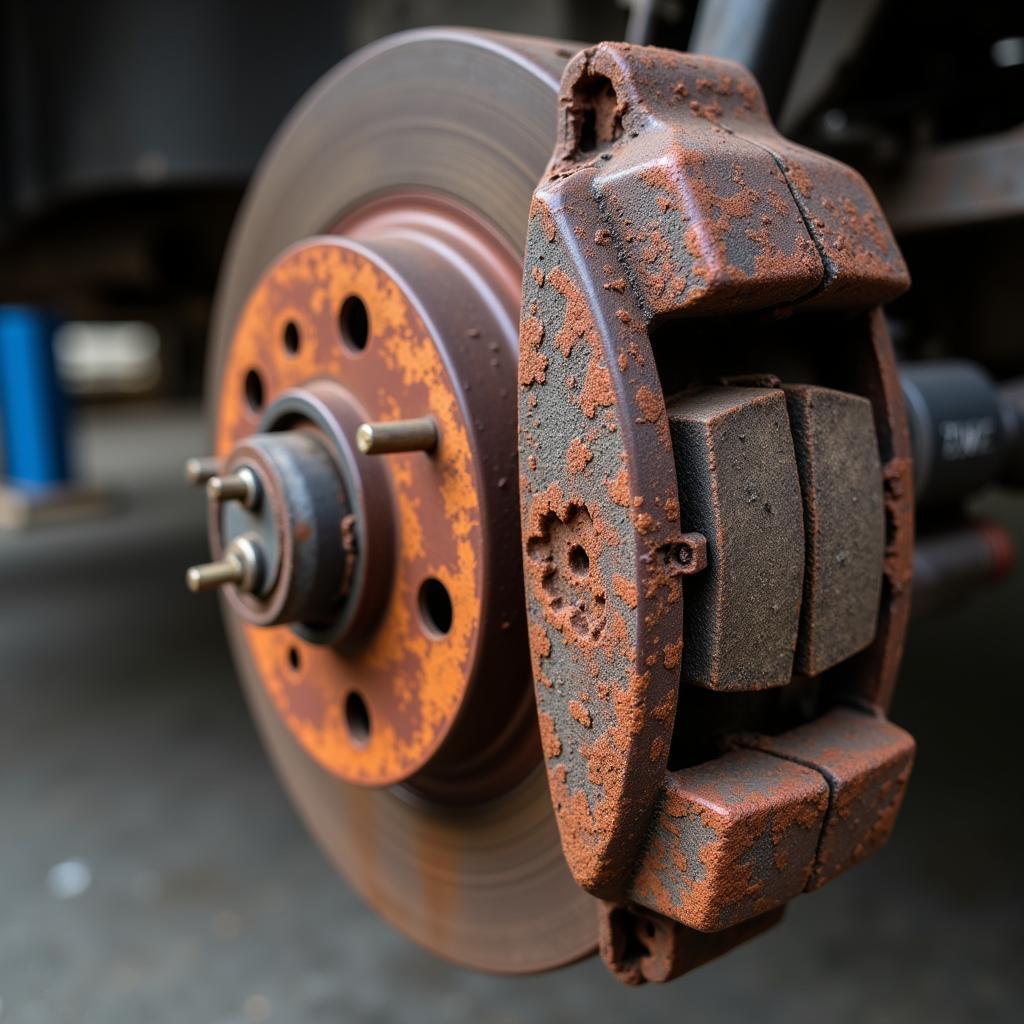Experiencing car starter problems can be frustrating, leaving you stranded and unsure of what to do. This comprehensive guide will walk you through the common Signs Of Car Starter Problems, helping you diagnose the issue and determine the best course of action. Understanding these signs can save you time, money, and unnecessary headaches down the road. Let’s dive in and empower you to tackle these automotive challenges head-on. electrical car problems
What are the most common signs of car starter problems?
Several key indicators can point towards a failing starter. Recognizing these signs early can prevent further damage and costly repairs. Some of the most prevalent signs of car starter problems include a clicking sound when you turn the key, the engine cranking slowly, or the car not starting at all. These symptoms can be intermittent or consistent, and understanding their nuances is crucial for accurate diagnosis.
Clicking Sound When Turning the Key
A clicking sound when you turn the key is often one of the first signs of car starter problems. This clicking usually originates from the starter solenoid, a small electromagnetic switch responsible for engaging the starter motor. The clicking suggests the solenoid is receiving power but failing to engage the motor. This could be due to a faulty solenoid, a weak battery, or corroded connections.
Engine Cranking Slowly
If your engine cranks slowly, struggling to turn over, it could signal a weakening starter motor. This slow cranking often indicates the starter isn’t receiving enough power to spin the engine efficiently. A failing starter, a weak battery, or thick engine oil can contribute to this issue. Don’t ignore this symptom, as it can lead to a complete starter failure.
Car Not Starting at All
Perhaps the most obvious sign of car starter problems is the car not starting at all. When you turn the key, you might hear nothing or a single click. This can indicate a completely dead starter motor, a disconnected or damaged wiring, or a dead battery. A thorough inspection is crucial to identify the root cause.
Other Signs of Car Starter Problems
Besides the primary signs mentioned above, there are other subtle indicators of car starter problems. These include:
- Freewheeling: The starter engages but doesn’t crank the engine.
- Grinding Noise: A grinding noise when starting can indicate damaged starter gears.
- Smoke from the Starter: Smoke suggests an electrical short within the starter.
- Intermittent Starting Issues: The car starts sometimes but not others, indicating a loose connection or a failing starter.
Diagnosing and Troubleshooting Car Starter Problems
Identifying the specific problem requires a systematic approach. car starting but engine wont turn over common problems Start by checking the battery connections for corrosion or looseness. A simple cleaning or tightening might resolve the issue. If the battery is weak, try jump-starting the car. If the car starts with a jump, it points to a battery problem. However, if the problem persists, a faulty starter is more likely. Further diagnosis might involve testing the starter solenoid and motor using a multimeter.
“A simple voltage test across the battery terminals can often reveal the culprit,” says John Davis, a seasoned automotive electrician with over 20 years of experience. “A reading below 12.6 volts usually indicates a weak or dying battery.”
When to Seek Professional Help
While some starter problems can be addressed with basic DIY skills, complex issues require the expertise of a qualified mechanic. If you’re unsure about the diagnosis or uncomfortable working on car electrical systems, seeking professional help is recommended. Attempting repairs beyond your skill level can lead to further damage or personal injury. possible problem if a car does not start
Preventing Car Starter Problems
Maintaining your car’s electrical system is crucial for preventing starter problems. Regular battery checks, cleaning battery terminals, and ensuring proper wiring connections can significantly extend the life of your starter. smart car electrical problems Also, avoid excessively short trips, as they can drain the battery and put extra strain on the starter.
“Preventive maintenance is key,” adds Maria Sanchez, a certified automotive technician. “Regularly checking your battery and connections can save you from unexpected breakdowns and costly repairs.”
Conclusion: Addressing signs of car starter problems
Recognizing the signs of car starter problems is the first step towards a solution. Whether it’s a clicking sound, slow cranking, or a complete failure to start, understanding these symptoms can help you diagnose the issue and take appropriate action. Regular maintenance and timely repairs can keep your car running smoothly and prevent unexpected breakdowns. goatn car problem If you’re experiencing any car starting issues, don’t hesitate to contact us at AutoTipPro at +1 (641) 206-8880 or visit our office at 500 N St Mary’s St, San Antonio, TX 78205, United States, for expert assistance and reliable solutions.





Leave a Reply